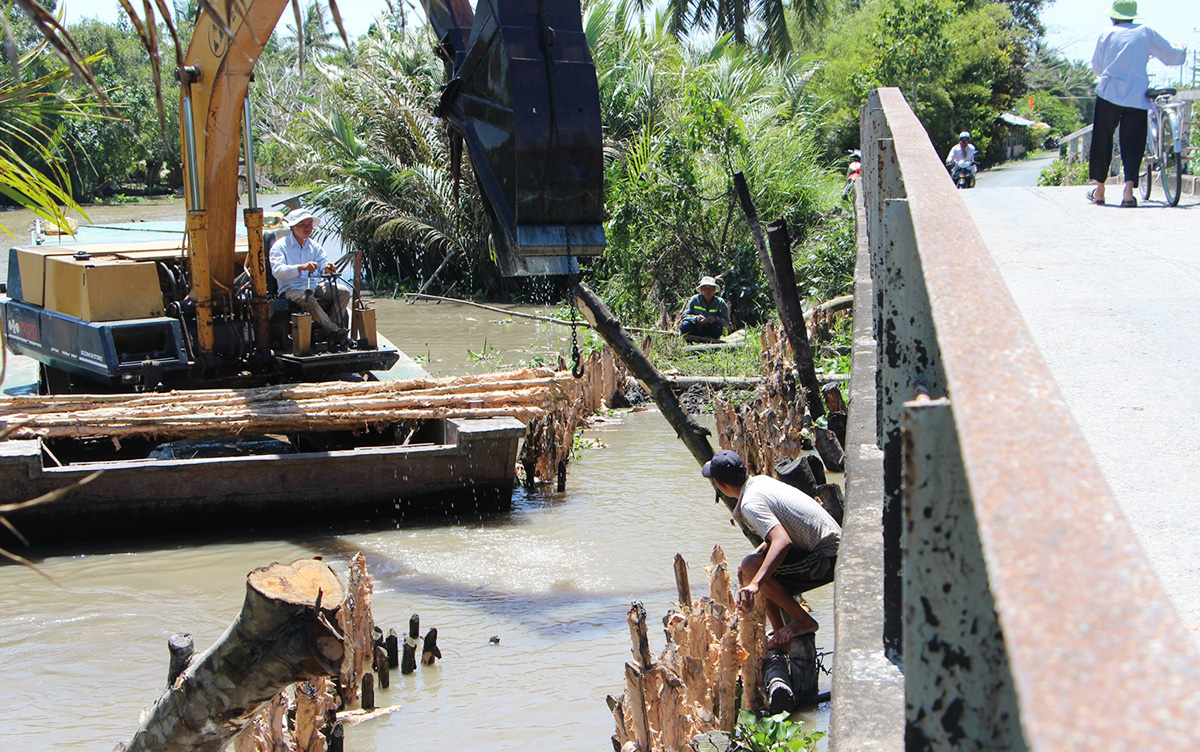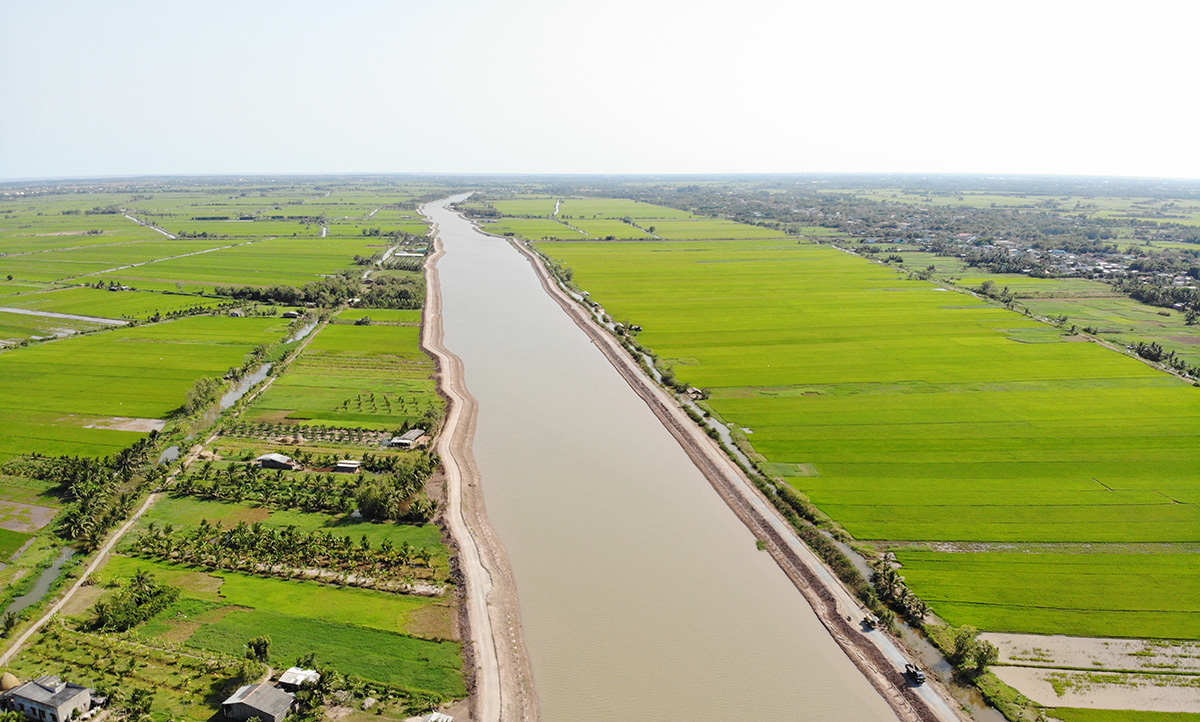As saltwater intrusion continues to affect several areas of Vietnam’s Mekong Delta just weeks before the Lunar New Year on January 25, authorities in many provinces are preparing to launch various plans meant to mitigate its negative impact and ensure the livelihoods and production abilities of residents.
According to Deputy Minister of Agriculture and Rural Development Nguyen Hoang Hiep, saltwater intrusion in 2020 began one month earlier than previous years and is expected to impact 10 of the13 provinces which together make the region.
In Long An Province alone, the phenomenon is forecast to damage more than 14,000 hectares of rice paddy, said Dinh Thi Phuong Khanh, deputy director of the provincial agriculture department.
Over 8,300 households in Can Giuoc and Can Duoc Districts will be deprived of fresh water, Khanh added.
Local authorities have taken certain measures to ensure sufficient resources at local water companies, while granting affected residents access to soft loans from the Vietnam Bank for Social Policies in order to afford rainwater tanks and water filters.
Necessary procedures are being expedited to begin the construction of various irrigation works and temporary embankments across the province.
In Ca Mau Province, farmers have been struggling to ensure enough water for their rice paddy.
|
|
| Ba Tri Reservoir, a project aimed at coping with saltwater intrusion in the Mekong Delta province of Ben Tre. Photo: M.Tr. / Tuoi Tre |
Statistics from the provincial Department of Agriculture and Rural Development showed that approximately 16,550 hectares of paddy has been affected, while 130,000 hectares of shrimp farms is under threat from the saltwater intrusion.
About 3,560 households are suffering from a freshwater shortage, a number expected to rise to 13,500 in the near future.
The phenomenon has also caused land subsidence in multiple areas across the province.
Le Thanh Trieu, director of the Ca Mau agriculture department, said a series of measures have been carried out to cope with the situation for the time being.
As a long-term solution, reservoirs will be built to store water for the dry season.
In Hau Giang Province, dams have been built in many areas to minimize the consequences brought about by saltwater intrusion.
Like us on Facebook or follow us on Twitter to get the latest news about Vietnam!























































